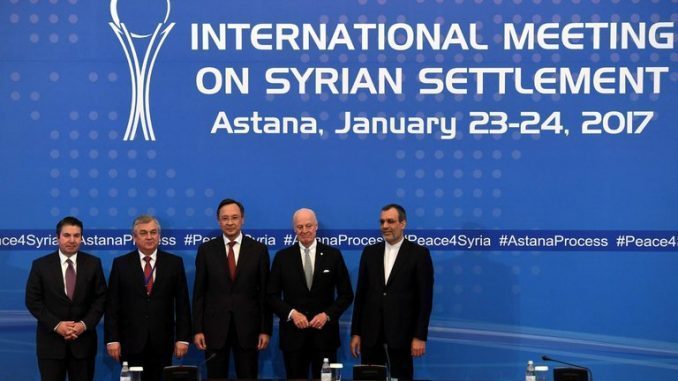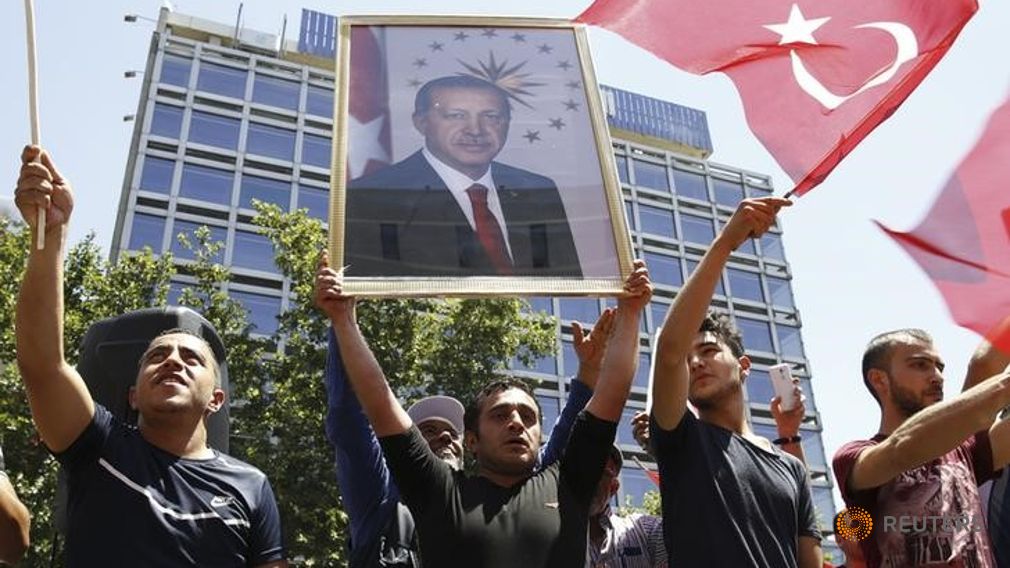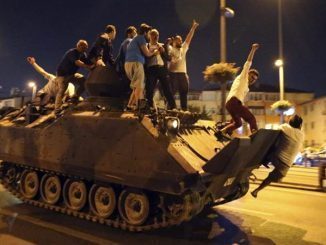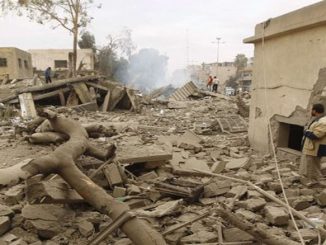
After the first day of the Syria peace talks ended with tension between to regime and opposition delegations, the second day witnessed a statement by the three Russia, Iran and Turkey, which didn’t include any part about a political settlement.
Russia said it has a new plan for Syria peace talks which can be achieved with powers that have a real effect on the Syrian ground after its forces backed Assad regime to achieve many victories against the opposition and tilted the tide of war in his favor.
Russia, Iran and Turkey said they were ready to help broker a Syria peace deal
Russian President Vladimir Putin said then that that Syrian opposition groups and the Syrian government had signed a number of documents including a ceasefire deal that will be guaranteed by Turkey and Russia.
The documents include a ceasefire agreement between the Syrian government and the opposition, measures to monitor the ceasefire deal and a statement on the readiness to start peace talks to settle the Syrian crisis, Putin said.
The ceasefire went into effect on December 29 but has been breached numerous times by Assad regime and the Iran-backed militias especially around Damascus city.
The opposition delegation said at first that they will not attend the talks in Astana due to the regime breaches, then said they will take part and focus on finding ways to maintain the ceasefire and protect the civilians.
Second day talks and the joint statement
The first day of the talks didn’t witness a direct contact between the warring parties, but both parts assured the importance of the ceasefire and traded blames over who breached it more. In addition, they had hope that Russia may keep its word and start finding a solution for the Syrian crisis.
Osama Abu Zeid, the opposition legal adviser said that “Monday talks basically focused on implementing the ceasefire on the ground.”
It was then stated that the mechanism of extending the ceasefire in Syria will be studied by the three major groups in Syria who will declare the text on Tuesday.
“Tuesday talks would discuss on Tuesday appointing a mechanism for ceasefire in Syria, opening humanitarian corridors to deliver aid to Assad-besieged areas. Releasing detainees, especially women in Assad regime’s detention centers and breaking Assad regime’s siege laid on Syrian cities and towns.”
The talks have ended with Russia, Turkey and Iran making a joint statement about the consequences of the talks and agreeing on a mechanism to support a delicate ceasefire, but it didn’t state how such a ceasefire can be maintained.
“We reaffirm our commitment to the sovereignty, independence, unity and territorial integrity of the Syrian Arab Republic as a multi-ethnic, multi-religious, non-sectarian and democratic State, as confirmed by the UN Security Council,” said the statement.
They added that there’s no military solution for the Syrian crisis, as Russia has previously stated.
“We express our conviction that there is no military solution to the Syrian conflict and that it can only be solved through a political process based on the implementation of the UN Security Council resolution 2254 in its entirety,” the statement added.
“We Decide to establish a trilateral mechanism to observe and ensure full compliance with the ceasefire, prevent any provocations and determine all modalities of the ceasefire,” but no obligatory action or preventive ways were mentioned or taken in this matter as Assad regime and Iran’s militias continued their offensive on rural Damascus.
The three powers also reiterated “their determination to fight jointly” against the Islamic State and against Al Qaeda’s affiliate in Syria, formerly known as the Nusra Front, pledging to “separate” them from armed opposition groups.
They also said they supported the willingness of the armed opposition groups to participate in the Geneva talks and that they were committed to “minimising violence, building confidence, ensuring humanitarian access, protection and free movement of civilians.”
However, representatives of the both Syrian delegations — from the government and opposition — immediately expressed reservations. They emphasized that they had not signed on to a document.
The opposition, who for the first time were represented by military rather than just political figures, submitted a separate proposal on the ceasefire and questioned Iran’s legitimacy as a broker at a time when they said Iranian militias were breaching the ceasefire.
The communique legitimized Iran’s “bloodletting” in Syria, complained Alloush, head of the opposition delegation, and did not address the role of Shi’ite militias fighting the rebels.
The opposition also showed no signs of quitting their demand that President Bashar al-Assad step down as soon as possible, something Damascus won’t accept.
“I don’t believe that the communique will be strong enough to be taken to the UN,” said Aridi, citing a number of rebel demands, including the lifting of sieges, the release of prisoners and the delivery of aid to besieged areas, that he said had not yet been “confirmed”.
The Syrian government delegation on its side had its own issues with the talks’ sponsors, questioning Turkey’s legitimacy as a broker at a time when it said Ankara was violating its sovereignty via an extended armed incursion into northern Syria.
The Syrian crisis began as a peaceful demonstration against the injustice in Syria. Assad regime used to fire power and violence against the civilians and led to armed resistance. 450.000 Syrians lost their lives in the past five years according to UN estimates, and more than 12 million have lost their homes.



